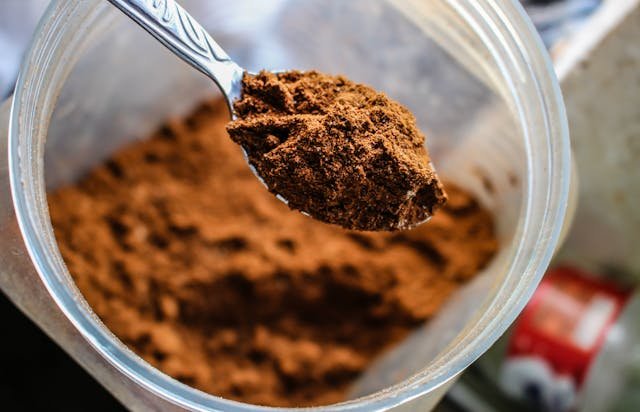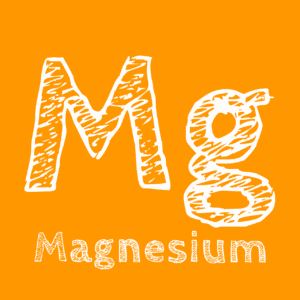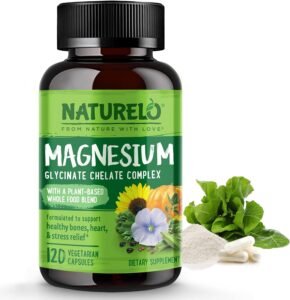Are you struggling to find the best vegan protein powder to fuel your plant-based lifestyle? 💪🌱 With so many options on the market, it can be overwhelming to choose the right one for your needs. But don’t worry – we’ve got you covered!
Whether you’re a seasoned vegan athlete or just starting your plant-based journey, getting enough protein is crucial for maintaining muscle mass, supporting recovery, and achieving your fitness goals. That’s where vegan protein powders come in handy. These convenient supplements can help you boost your protein intake without compromising your ethical or dietary choices.
In this comprehensive guide, we’ll dive deep into the world of vegan protein powders. You’ll discover the different types of plant-based protein sources, explore the top products on the market, and learn how to choose the best option for your unique needs. We’ll also share tips on incorporating these powders into your daily routine and discuss potential side effects to watch out for. So, let’s embark on this journey to find your perfect vegan protein powder match!

Table of Contents
ToggleUnderstanding Vegan Protein Powder
As you embark on your journey to find the best vegan protein powder, it’s crucial to have a solid understanding of what these products are and how they can benefit you. Let’s dive into the world of vegan protein powders and explore their potential for enhancing your plant-based lifestyle.
What is vegan protein powder?
Vegan protein powder is a plant-based dietary supplement designed to provide a concentrated source of protein without any animal-derived ingredients. Unlike traditional protein powders that often contain whey or casein (milk proteins), vegan protein powders are made exclusively from plant sources. This makes them suitable for vegans, vegetarians, and those with dairy allergies or intolerances.
These powders are typically made by extracting protein from various plant sources and processing them into a fine, easily mixable powder. Some common sources of vegan protein include:
- Pea protein
- Hemp protein
- Rice protein
- Soy protein
- Pumpkin seed protein
- sunflower sedd protein
Many vegan protein powders combine multiple plant sources to create a complete amino acid profile, mimicking the nutritional benefits of animal-based proteins. This combination approach ensures that you’re getting all the essential amino acids your body needs for optimal function and muscle growth.
Who should use vegan protein powder?
Vegan protein powder can be beneficial for a wide range of individuals, not just those following a strict plant-based diet. Here’s a list of people who might consider incorporating vegan protein powder into their routine:
- Vegans and vegetarians
- Individuals with dairy allergies or lactose intolerance
- Athletes and fitness enthusiasts
- People looking to increase their protein intake
- Those trying to lose weight or manage their weight
- Individuals with specific dietary restrictions
- People recovering from injuries or surgeries
- Older adults looking to maintain muscle mass
- Busy professionals seeking quick, nutritious meal replacements
- Anyone interested in exploring plant-based nutrition
It’s important to note that while vegan protein powder can be a valuable addition to your diet, it’s not a necessity for everyone. If you’re able to meet your protein needs through whole food sources, that’s often the preferred approach. However, for many people, vegan protein powder offers a convenient and effective way to boost their protein intake.
Benefits of using vegan protein powder
Incorporating vegan protein powder into your diet can offer numerous advantages. Let’s explore some of the key benefits:
- Complete protein source: Many vegan protein powders provide all essential amino acids, making them a complete protein source comparable to animal-based proteins.
- Digestive health: Plant-based proteins are often easier to digest than animal proteins, potentially reducing bloating and discomfort.
- Heart health: Vegan protein powders are typically low in saturated fat and cholesterol-free, which can contribute to better heart health.
- Environmental sustainability: Plant-based proteins generally have a lower environmental impact compared to animal-based proteins.
- Allergen-friendly options: Many vegan protein powders are free from common allergens like dairy, eggs, and soy.
- Weight management: High-protein diets can help with satiety and weight management, and vegan protein powders offer a low-calorie way to increase protein intake.
- Muscle building and recovery: Vegan protein powders can support muscle growth and recovery, making them suitable for athletes and fitness enthusiasts.
- Nutrient density: Many vegan protein powders are fortified with additional vitamins, minerals, and fiber, enhancing their nutritional profile.
- Versatility: Vegan protein powders can be easily incorporated into various recipes, from smoothies to baked goods.
- Ethical considerations: For those concerned about animal welfare, vegan protein powders align with ethical dietary choices.
To better understand how vegan protein powders compare to other protein sources, let’s look at this comparison table:
| Protein Source | Protein per 30g serving | Complete Protein | Digestibility | Environmental Impact |
|---|---|---|---|---|
| Vegan Protein Powder | 20-25g | Often (when blended) | High | Low |
| Whey Protein | 24-28g | Yes | Medium-High | Medium |
| Egg White Protein | 23-26g | Yes | High | Medium |
| Soy Protein | 22-24g | Yes | Medium | Low |
| Beef Protein | 22-24g | Yes | Medium | High |
As you can see, vegan protein powders offer a competitive protein content while providing additional benefits in terms of digestibility and environmental impact.
Find more here.
When choosing a vegan protein powder, it’s essential to consider factors such as taste, texture, and mixability. Some people find that certain plant proteins have a grittier texture or stronger flavor compared to whey protein. However, many brands have developed innovative formulations that address these concerns, resulting in smooth, palatable vegan protein powders.
It’s also worth noting that not all vegan protein powders are created equal. Some may contain added sugars, artificial flavors, or fillers. When selecting a vegan protein powder, look for products with minimal ingredients and those that align with your specific nutritional goals.
As we move forward, we’ll explore the various types of vegan protein sources available, helping you make an informed decision about which option might be best for your needs. Understanding the different plant-based protein sources will give you a solid foundation for choosing the right vegan protein powder for your lifestyle and goals.

Types of Vegan Protein Sources
As you explore the world of vegan protein powders, it’s essential to understand the various plant-based protein sources available. Each type offers unique benefits and nutritional profiles, catering to different dietary needs and preferences. Let’s dive into the most common types of vegan protein sources used in protein powders.
A. Mixed Plant Protein Blends
Mixed plant protein blends are becoming increasingly popular among vegans and health enthusiasts alike. These blends combine multiple plant-based protein sources to create a more complete amino acid profile, closely mimicking that of animal proteins.
Benefits of Mixed Plant Protein Blends:
- Comprehensive amino acid profile
- Diverse nutrient content
- Improved digestibility
- Enhanced flavor and texture
Many top vegan protein brands offer mixed plant protein blends, recognizing their superior nutritional value. These blends often include a combination of pea, rice, hemp, and other plant proteins to provide a well-rounded supplement.
B. Rice Protein
Rice protein, derived from brown rice, is a popular choice for those seeking a hypoallergenic and easily digestible protein source. While it’s not a complete protein on its own, it’s often combined with other plant proteins to create a more balanced amino acid profile.
Key Features of Rice Protein:
- High in branched-chain amino acids (BCAAs)
- Gluten-free and hypoallergenic
- Gentle on the digestive system
- Suitable for those with soy or dairy allergies
Rice protein is an excellent option for athletes and fitness enthusiasts looking to build lean muscle mass. Its high BCAA content supports muscle recovery and growth, making it a valuable addition to your post-workout routine.
C. Hemp Protein
Hemp protein is derived from hemp seeds and offers a unique nutritional profile that sets it apart from other vegan protein sources. Rich in omega-3 fatty acids and fiber, hemp protein provides more than just protein to support your overall health.
Benefits of Hemp Protein:
- Complete protein source with all essential amino acids
- High in omega-3 and omega-6 fatty acids
- Rich in fiber for improved digestion
- Contains minerals like iron, zinc, and magnesium
When comparing pea protein vs hemp protein, hemp stands out for its higher fat content and additional nutritional benefits. However, it’s worth noting that hemp protein has a distinct earthy flavor that may not appeal to everyone.
D. Soy Protein
Soy protein has long been a staple in the vegan protein market. Derived from soybeans, it’s one of the few plant-based proteins that’s considered a complete protein, containing all essential amino acids.
Advantages of Soy Protein:
- Complete amino acid profile
- High protein content
- Shown to support heart health
- May help reduce cholesterol levels
Despite its benefits, soy protein has become somewhat controversial due to concerns about its phytoestrogen content and potential allergenic properties. As a result, many consumers are opting for soy-free vegan protein alternatives.
E. Pea Protein
Pea protein, extracted from yellow split peas, has gained significant popularity in recent years. It’s known for its high protein content, excellent amino acid profile, and smooth texture, making it a favorite among vegans and non-vegans alike.
Why Choose Pea Protein:
- High in branched-chain amino acids (BCAAs)
- Easily digestible and hypoallergenic
- Low in fat and carbohydrates
- Smooth texture and mild flavor
Pea protein is particularly rich in lysine, an essential amino acid that’s often lacking in other plant-based proteins. This makes it an excellent choice for those following a vegan diet or looking to supplement their protein intake.
Now that we’ve explored the different types of vegan protein sources, let’s compare their nutritional profiles to help you make an informed decision:
| Protein Source | Protein Content (per 30g serving) | Complete Protein? | Key Benefits |
|---|---|---|---|
| Mixed Blends | 20-25g | Yes | Balanced amino acid profile, diverse nutrients |
| Rice Protein | 22-24g | No | High in BCAAs, gluten-free |
| Hemp Protein | 15-20g | Yes | Rich in omega-3s and fiber |
| Soy Protein | 25-28g | Yes | May support heart health |
| Pea Protein | 24-27g | No | High in lysine, smooth texture |
When choosing the best plant-based protein for your needs, consider factors such as:
- Your specific nutritional requirements
- Any food allergies or sensitivities
- Taste preferences
- Desired texture in shakes or recipes
- Protein content per serving
- Additional nutrients offered
For instance, if you’re an athlete looking to build muscle, a pea protein or mixed blend high in BCAAs might be your best bet. On the other hand, if you’re seeking overall nutritional support, hemp protein with its omega-3s and fiber could be an excellent choice.
Many organic vegan protein supplements combine these different protein sources to create well-rounded products that cater to various needs. When selecting a vegan protein powder, look for reputable brands that use high-quality, organic ingredients and third-party testing to ensure purity and potency.
As you explore dairy-free protein shakes and powders, don’t be afraid to experiment with different types to find the one that best suits your taste preferences and nutritional needs. Remember, the best vegan protein powder for you is one that you enjoy consuming regularly and that aligns with your health and fitness goals.
With this comprehensive understanding of vegan protein sources, you’re now well-equipped to make an informed decision when choosing your protein supplement. Next, we’ll explore some of the top vegan protein powders available on the market, helping you narrow down your options and find the perfect product for your lifestyle.

Top Vegan Protein Powders on the Market
Now that you understand the various types of vegan protein sources, let’s explore some of the best vegan protein powders available in the market. Whether you’re looking for an unflavored option, a tasty flavored variety, a budget-friendly choice, or the best overall product, we’ve got you covered.
Best Unflavored Vegan Protein Powder
When it comes to versatility and purity, unflavored vegan protein powders are hard to beat. They allow you to customize your shakes and easily incorporate protein into your recipes without altering the taste. Here are some top contenders:
- Naked Pea Protein: This single-ingredient protein powder is made from yellow pea protein isolate. It’s free from additives, artificial sweeteners, and GMOs. With 27 grams of protein per serving, it’s an excellent choice for those looking for a clean, unflavored option.
- NOW Sports Pea Protein: Another great unflavored option, NOW Sports Pea Protein offers 24 grams of protein per serving. It’s non-GMO, gluten-free, and easily digestible.
- Garden of Life Raw Organic Protein: This blend of pea protein, sprouted grains, and seeds provides a complete amino acid profile. It’s organic, gluten-free, and contains probiotics for digestive health.
Comparison Table: Unflavored Vegan Protein Powders
| Brand | Protein per Serving | Price Range | Special Features |
|---|---|---|---|
| Naked Pea | 27g | $$$ | Single-ingredient, Non-GMO |
| NOW Sports | 24g | $$ | Non-GMO, Gluten-free |
| Garden of Life | 22g | $$$ | Organic, Probiotic-infused |
Best Flavored Vegan Protein Powder
If you prefer your protein shakes with a tasty twist, flavored options can make your daily protein intake more enjoyable. Here are some top-rated flavored vegan protein powders:
- Vega Sport Premium Protein: Available in flavors like chocolate, vanilla, and berry, this blend of pea, pumpkin seed, and sunflower seed proteins offers 30 grams of protein per serving. It also includes BCAAs and glutamine for muscle recovery.
- Orgain Organic Plant-Based Protein: With flavors like creamy chocolate fudge and vanilla bean, this powder combines pea, brown rice, and chia seed proteins. It provides 21 grams of protein per serving and is USDA organic.
- PlantFusion Complete Plant Protein: Offering unique flavors like cookies n’ cream and red velvet cake, this blend of pea, artichoke, organic sprouted amaranth, and organic sprouted quinoa proteins provides 21 grams of protein per serving. It’s also free from common allergens.
Comparison Table: Flavored Vegan Protein Powders
| Brand | Protein per Serving | Flavors Available | Special Features |
|---|---|---|---|
| Vega Sport | 30g | 4+ | BCAAs, Glutamine |
| Orgain | 21g | 5+ | USDA Organic |
| PlantFusion | 21g | 6+ | Allergen-free |
Best Budget-Friendly Option
If you’re looking to increase your protein intake without breaking the bank, these budget-friendly vegan protein powders offer great value:
- Bulk Supplements Pea Protein Powder: This no-frills option provides 24 grams of protein per serving at a very competitive price. It’s unflavored and contains only one ingredient: pea protein isolate.
- Nutricost Plant Protein: Offering both unflavored and flavored options, this affordable blend of pea and rice proteins provides 23 grams of protein per serving. It’s non-GMO and gluten-free.
- NAKED Rice: Another single-ingredient option, this rice protein powder offers 25 grams of protein per serving at a budget-friendly price. It’s made from sprouted brown rice and is third-party tested for heavy metals.
Comparison Table: Budget-Friendly Vegan Protein Powders
| Brand | Protein per Serving | Price per Serving | Special Features |
|---|---|---|---|
| Bulk Supplements | 24g | $ | Single-ingredient |
| Nutricost | 23g | $ | Flavored options available |
| NAKED Rice | 25g | $ | Sprouted brown rice, Third-party tested |
Best Overall Vegan Protein Powder
When considering the best overall vegan protein powder, we look at factors such as protein content, amino acid profile, digestibility, taste, and additional nutritional benefits. Here are our top picks:
- Transparent Labs Organic Vegan: This blend of organic rice and pea proteins offers 24 grams of protein per serving with a complete amino acid profile. It’s sweetened with stevia and comes in chocolate and vanilla flavors. What sets it apart is its transparency in labeling and third-party testing for purity.
- Optimum Nutrition Gold Standard 100% Plant: This protein powder combines pea, brown rice, and sacha inchi proteins to deliver 24 grams of protein per serving. It’s enhanced with vitamin B12 and includes a blend of ancient grains. Available in chocolate and vanilla flavors, it mixes well and tastes great.
- KOS Organic Plant Protein: This comprehensive blend includes pea protein, flax seed, quinoa, pumpkin seed, and chia seed. It provides 20 grams of protein per serving along with a digestive enzyme blend. Available in five flavors, it’s USDA organic and includes a fruit and vegetable blend for added nutrition.
Comparison Table: Best Overall Vegan Protein Powders
| Brand | Protein per Serving | Protein Sources | Additional Benefits |
|---|---|---|---|
| Transparent Labs | 24g | Rice, Pea | Third-party tested |
| Optimum Nutrition | 24g | Pea, Rice, Sacha Inchi | Vitamin B12, Ancient grains |
| KOS Organic | 20g | Pea, Flax, Quinoa, Pumpkin, Chia | Digestive enzymes, Fruit & veggie blend |
When choosing the best vegan protein powder for you, consider your specific needs and preferences. If you’re an athlete or bodybuilder, you might prioritize higher protein content and BCAAs. If you have digestive sensitivities, look for options with added digestive enzymes. For those focused on overall nutrition, blends with additional vitamins, minerals, and superfoods might be more appealing.
Remember, the “best” protein powder can vary from person to person. It’s often worth trying a few different options to find the one that suits your taste preferences, digestive system, and fitness goals best. Many brands offer sample sizes or money-back guarantees, allowing you to experiment without committing to a large container.
When incorporating vegan protein powder into your diet, start with the recommended serving size and adjust as needed based on your protein requirements. You can mix these powders with water, plant-based milk, or blend them into smoothies. Some can even be used in baking or cooking to boost the protein content of your meals.
As we move forward, it’s important to consider other factors that can influence your choice of vegan protein powder. In the next section, we’ll delve into these considerations to help you make an informed decision that aligns with your health goals and lifestyle.
Conclusion
Finding the perfect vegan protein powder can be a game-changer for your plant-based lifestyle. Whether you’re an athlete, fitness enthusiast, or simply looking to boost your protein intake, vegan protein powders offer a convenient and nutritious way to meet your daily protein needs. With a variety of plant-based options such as pea, rice, hemp, and soy protein, there’s something for everyone. By understanding the different types of vegan protein sources and evaluating key factors like taste, protein content, and nutritional benefits, you can confidently choose the best vegan protein powder to fuel your journey.
FAQ
1. Can vegan protein powders build muscle as effectively as whey protein?
Yes, many vegan protein powders offer a complete amino acid profile, especially when blended from multiple plant sources, making them just as effective as whey protein for muscle building and recovery.
2. Is vegan protein powder safe for people with food allergies?
Many vegan protein powders are free from common allergens like dairy, soy, and gluten, making them a suitable option for those with food sensitivities. Always check the ingredient list to ensure it aligns with your dietary needs.
3. How much protein should I consume daily?
The recommended daily intake varies depending on factors like your activity level, age, and fitness goals. Generally, it’s advised to consume 0.8-1.6 grams of protein per kilogram of body weight, but athletes may require more.
4. Can I use vegan protein powder in cooking or baking?
Absolutely! Vegan protein powder can be added to smoothies, oatmeal, and even baked goods like pancakes, muffins, and protein bars to enhance the protein content of your meals.




